
China
20:50, 08-May-2018
HK, Macao and Taiwan being part of China is a fact, not 'Chinese political correctness', says MOFA
CGTN
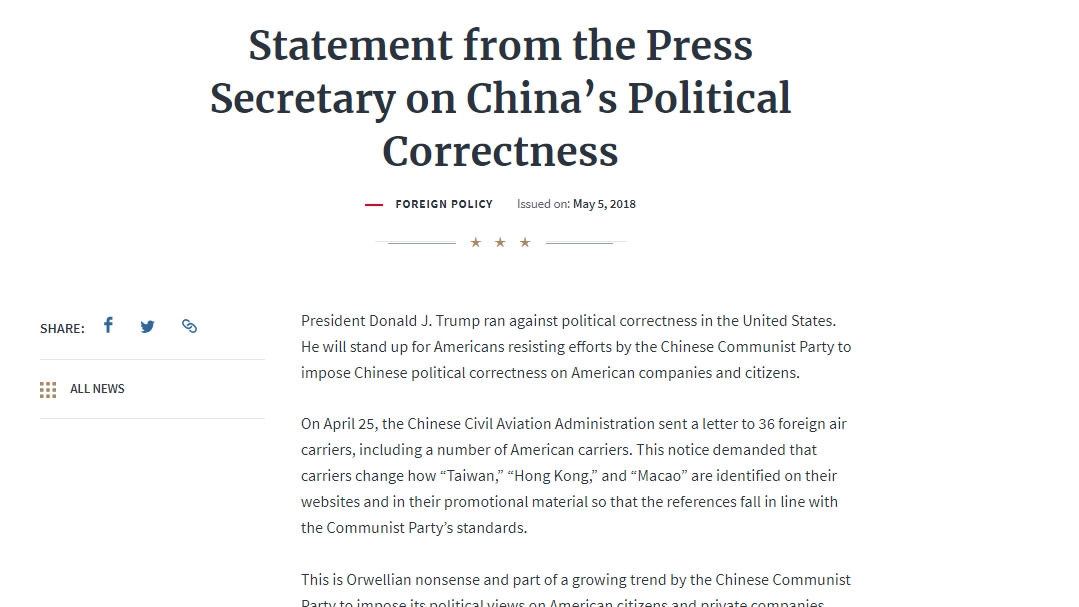
The Chinese Ministry of Foreign Affairs has reiterated the importance of the one-China policy in response to Washington's criticism of Chinese aviation authorities' demand that foreign airline companies change how they refer to Hong Kong and Macao Special Administrative Regions (SARs), and Taiwan.
Geng Shuang, spokesperson for the ministry, re-emphasized on Monday that Hong Kong and Macao SARs and Taiwan are all parts of the Chinese territory.
"Whatever the US side says or does will never change the objective fact that there is only one China in the world and the Hong Kong, Macao and Taiwan regions are all inalienable parts of China’s territory. China will continue to handle its relations with other countries in accordance with the one-China principle," Geng said.
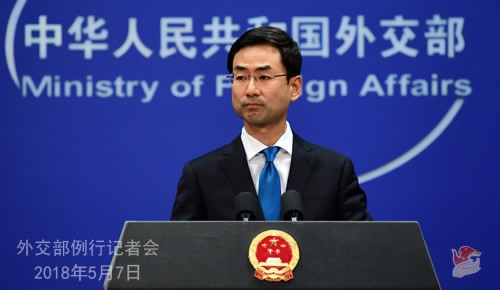
Foreign Ministry spokesperson Geng Shuang speaks as a regular press conference in Beijing, May 7. /Photo via China's Ministry of Foreign Affairs
Foreign Ministry spokesperson Geng Shuang speaks as a regular press conference in Beijing, May 7. /Photo via China's Ministry of Foreign Affairs
He was responding to a question about a recent White House’s statement which said US President Donald Trump will fight attempts to impose “Chinese political correctness on American companies and citizens," and similar comments by the US embassy in Beijing.
The White House released a statement on May 5 pointing to a letter from the Civil Aviation Administration of China (CAAC) to 36 foreign airliners, including US airline companies, in which it urged them to change how Hong Kong, Macao and Taiwan are identified in their promotional materials and on their websites.
The statement labeled CAAC’s request as "Orwellian nonsense" and alleged that the Communist Party of China is trying to "impose its political views on American citizens and private companies". Accusations were also made about China’s alleged internal Internet repression.
Geng said however that facts are facts.
"We have to point out that foreign enterprises operating in China should respect China’s sovereignty and territorial integrity, abide by China’s law and respect the national feeling of the Chinese people. This is the basic principle for them to follow when doing business," he said.
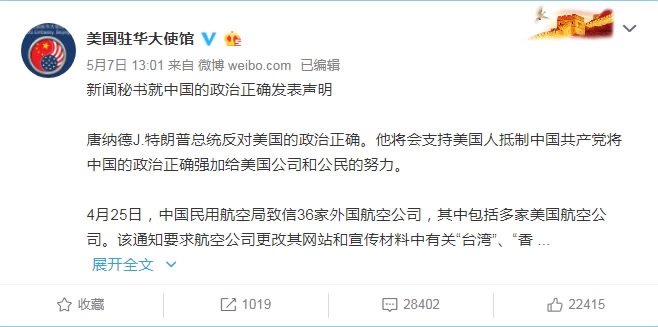
Screenshot of the Chinese translation of the White House statement posted on Weibo by the US embassy in China.
Screenshot of the Chinese translation of the White House statement posted on Weibo by the US embassy in China.
Chinese netizens expressed anger over the US's stance after its mission in China posted a translated version of the English statement on its official account on China's Twitter-like Weibo two days later.
"This is not an issue of political correctness but one-China policy. Please follow the China-US Joint Communiques," @Taizizhanshitongzhongshumenxiasanpin explained below the US embassy’s post.
"It is not about political correctness. China’s Hong Kong, Macao and Taiwan is the common understanding in the world," another Weibo user who goes by the name @Bitegongju responded, noting that "The 'internal Internet repression' reviews utterances that pose threats to a peaceful society."
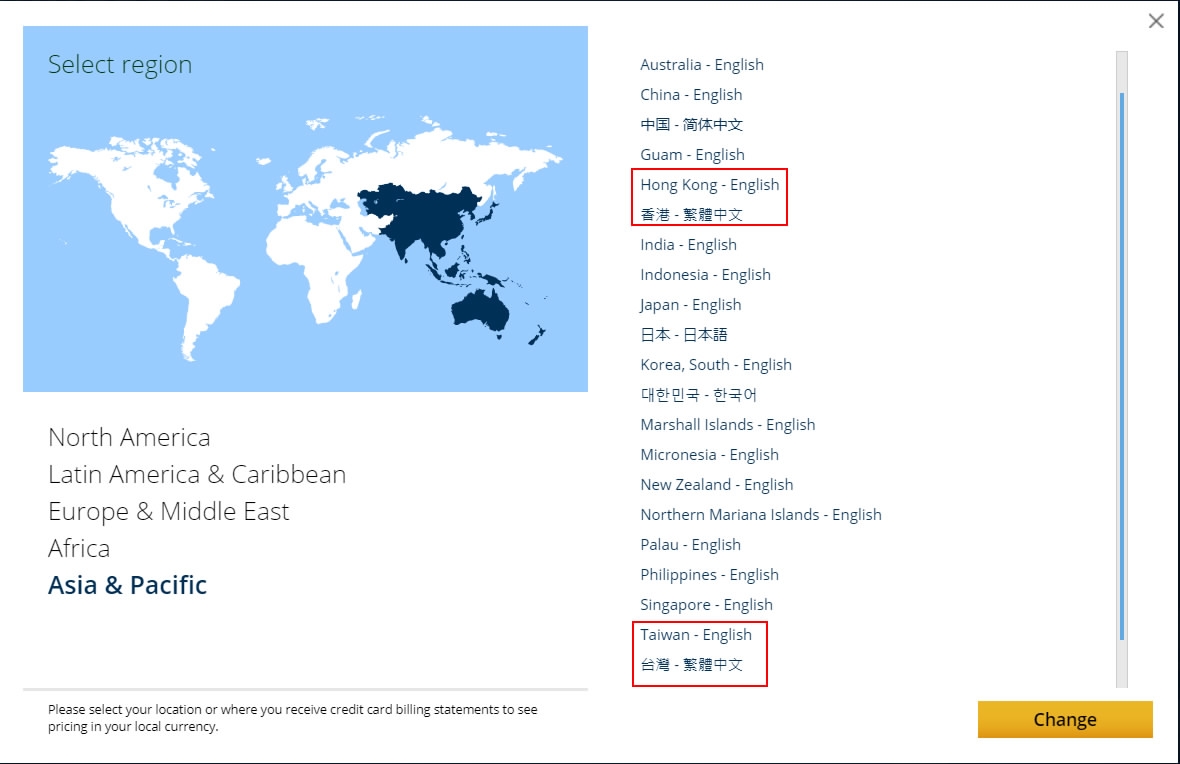
Screenshot of the website of United Airlines.
Screenshot of the website of United Airlines.
"The [White House allegations] have nothing to do with freedom of speech. This is the Chinese law. The US intervenes in the businesses of Huawei and ZTE with its law. Why can the American air carriers not follow the Chinese law? Besides, the carriers have business Interest in the Chinese market," @Xiangjianyugong noted on Weibo.
In the wake of a January incident of inaccurate reference of Tibet, Hong Kong, Macao and Taiwan as separate countries by Marriott International Inc, China has been carrying out reviews on portals operated by both Chinese and foreign enterprises.
The CAAC published a statement on its website after Marriott’s incident, urging all foreign air carriers that operate air routes to and from China to immediately review the references to these three regions on their official websites, apps and in their promotional materials.
According to Shanghai-based news outlet The Paper, around 24 airlines were found to have wrongly listed Hong Kong, Macao and Taiwan as "a country" or "a nationality."
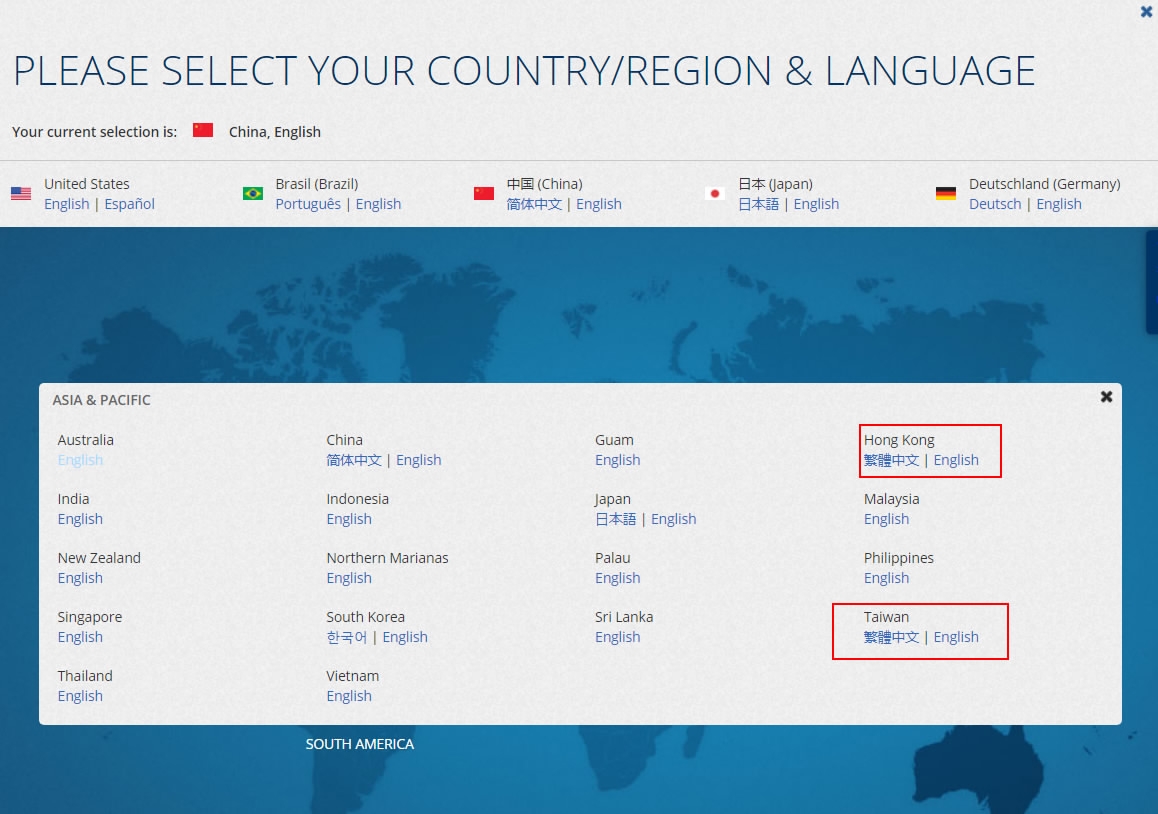
Screenshot of the website of Delta Air Lines.
Screenshot of the website of Delta Air Lines.
The references to these Chinese regions can still be seen on the websites of some American air carriers, including United Airlines, Delta Air Lines and American Airlines.

SITEMAP
Copyright © 2018 CGTN. Beijing ICP prepared NO.16065310-3
Copyright © 2018 CGTN. Beijing ICP prepared NO.16065310-3